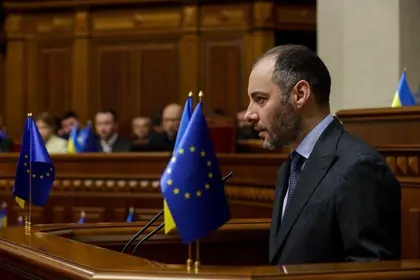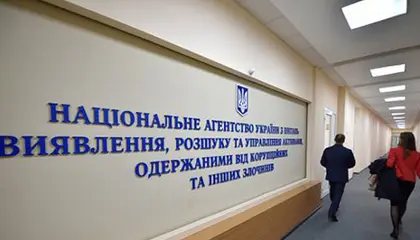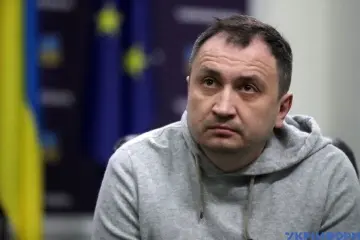In May 2022, the occupiers attacked the Odesa Portside Plant (OPP), with shells exploding within fifty meters of warehouses storing seized 42,000 tons of Russian ammonia. If the store itself had been struck the outcome could have been the same as the August 2020 explosion in the Port of Beirut.
Although the legislative framework for the confiscation and further sale of Russian assets had been in place in Ukraine for some time, no action had been taken in this case. In fact, it seems the legislation was resulting in more corruption rather than bringing money into the state budget.
One of the most high-profile examples of this involved the sale of the aforementioned Russian ammonia as well as 2,200 tons of Belarusian potassium. Suspicions that some of the state bodies involved in the sales were abusing their power were voiced to ARMA, who should have received the confiscated or seized assets.
Since the beginning of the year, these anomalies have been investigated by the MPs and experts within the framework of the Parliamentary Temporary Investigative Commission (TIC) on economic security. The TIC's first meeting, where the management of ARMA, the Bureau of Economic Security (BEB), the Office of the Prosecutor General (OGP), and other involved state enterprises and state bodies were invited, has already given some answers.
The slow process of confiscation, investigation and selling of Russian assets
Prior to February 2022, ammonia and potassium were illegally imported to Ukraine on an industrial scale. In the case of the Russian ammonia, not only had it not been sold three months after the invasion, the Economic Security Bureau of Ukraine (ESB) did not initiate an investigation into the case for more than 5 months. Criminal proceedings were only opened on April 5, 2022 and the ammonia was not transferred to ARMA until July 13, 2022.

Mystery Surrounds Firing of Deputy Reconstruction Minister
Even though an "incentive" was given to speed up the process, at a meeting in the Office of the President chaired by the Deputy Head of the Office Rostyslav Shurma, the process slowed down once more. ARMA was unable to sell the seized ammonia until March 2023.
Additionally, the possibility of criminal proceedings for this case has not even yet been raised. Representatives of the ESB and the OGP say that examination of the case has now have already been scheduled and that proceedings are moving forward, albeit slowly. If there is no investigation or criminal charges, then Ukraine will have to return funds, raised by the sale of this ammonia, to residents of the terrorist state.
Price and tax abuses while selling seized Russian assets
Delaying the seizure and sale of Russian property on the territory of Ukraine is not the only problem of the confiscation process. When the seized assets are about to get sold, oudated tender processes come into play.
ARMA sold the ammonia at five auctions for a total of Hr. 1.3 billion, an average selling price of around Hr. 33,000 per ton. This in comparison with the average price of ammonia on the electronic platform "Prozorro.Sale" being Hr. 41,000 per ton (excluding VAT).
At the TIC meeting, the management of ARMA tried to justify this difference with the fact that they also needed to pay tax and customs (2% customs and 20% VAT), storage at the warehouse, and transportation fees.
However, as it turns out, neither customs nor VAT has been paid on the sold ammonia and OPP reported that was still owed another Hr. 178 million for storage services, which creates a risk of bankruptcy for this state-owned enterprise.
It appears that the ammonia was sold to bogus companies who resold it at a markup and, probably, without paying VAT. This is currently being investigated together with the DPS.
So, not only was the material sold at a knock down price, costing the state budget about Hr. 293 million, but if we take into account the debt to OPP, the total losses (which probably ended up in someone's pocket) amount to about UAH 471 million.
In the case of the Belarusian potassium, the difference between the market price and the actual selling price is even greater. In September 2022, ARMA sold 2.2 thousand tons of seized potassium through the "Prydniprovye-2021" platform at a price of Hr. 17,700 per ton without VAT. In December of the same year, UkrGasVydobuvannya sold potassium on "Prozorro.Sales" at a minimum price of Hr. 41,500 a ton including VAT (a difference of more than Hr. 33,000 a ton excluding VAT).
ARMA explains this difference as a "reasonable" assessment of expertise. But, as Oleksiy Zhmerinetskyi, a member of the TIC and an MP, notes: even this assessment should have resulted a price range between UAH 17,500 - 23,000 per ton - although both prices are much lower than market prices, it seems that the lowest price was chosen without any justification.
It is reasonable to assume that the state lost more than half a billion hryvnia on these two items alone.
Non-transparent sales
Both the seized ammonia and potassium were sold through the same platform, "Prydniprovye-2021". This site was also chosen unilaterally by ARMA without any tender or explanation. The state platform "Prozorro.Sales" is supposed to be used for such operations, but ARMA seems to be constantly looking for reasons not to work with them.
Information about these auctions was not published on the ARMA website and it is impossible to find it on the "Prydniprovye-2021" official site as access to the direct link https://dtrade.biz.ua/ is only possible using “Chrome” and then only with a specific configuration of security settings.
That is, the sale of the seized assets is organized in such a way that no "unwanted" buyers can find out about the auction, allowing assets to be easily sold to “insiders” at reduced prices.
We believe that these two cases are just the tip of the iceberg. The issues raised here should be fully investigated by the TIC and law enforcement agencies – someone “high-up” is benefitting from playing the system.
Ukraine should be setting an example to the whole world when it comes to confiscating the assets of a terrorist state. The state bodies responsible for this, in particular ARMA, are failing and demonstrating both inefficiency and abuse of power. Any investigations and verdicts are a matter for the law enforcement agencies, to which TIC has handed over all documentation. The result of those inquiries should, at the very least, ensure full transparency and accountability for sales of confiscated Russian property through "Prozorro.Sales". Consideration should be given to the liquidation of ARMA, a body that, amid this full-scale war, can be accused of openly sabotaging the fight on the economic front.
You can also highlight the text and press Ctrl + Enter






